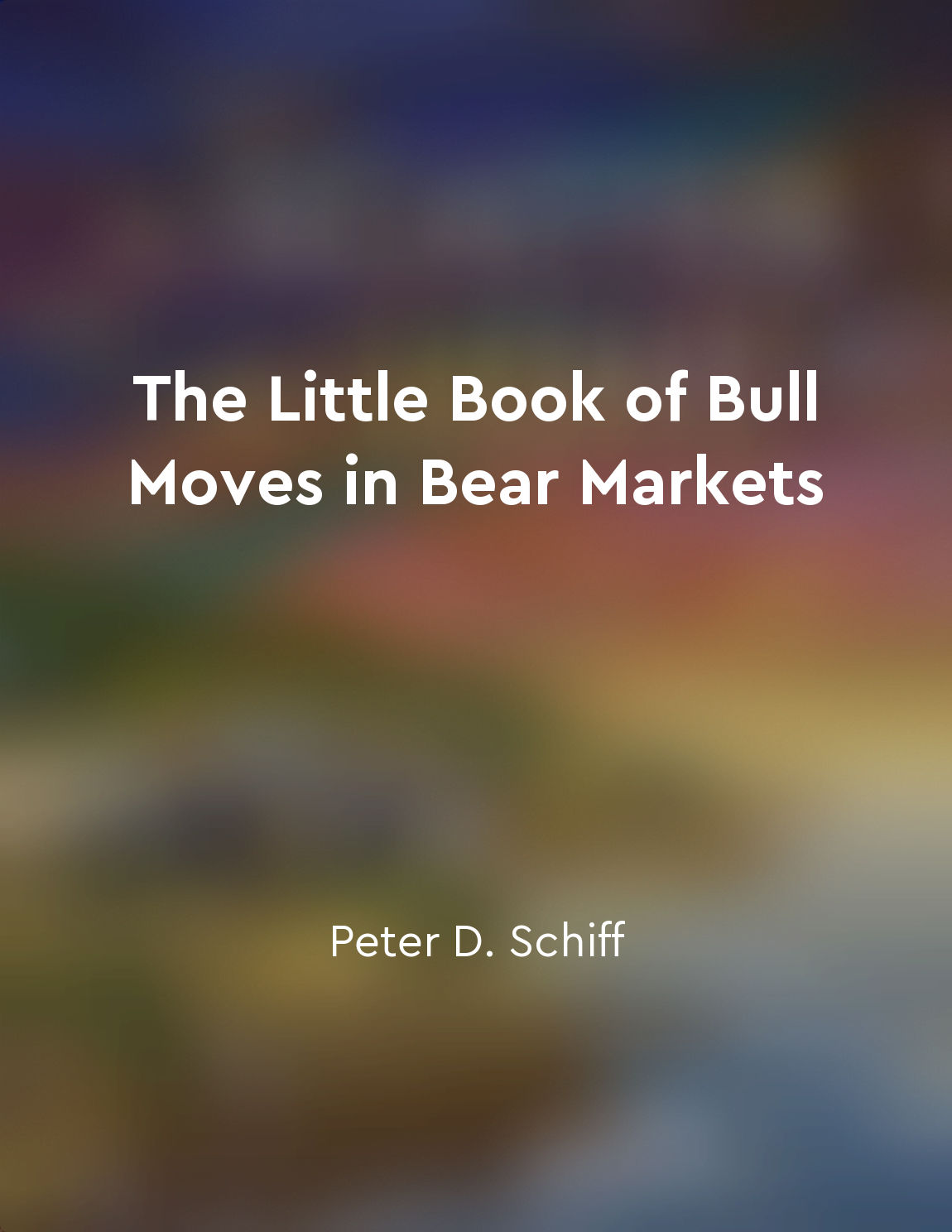Market liquidity is crucial for financial stability from "summary" of Economics of Money, Banking and Financial Markets, Business School by Frederic S. Mishkin
Market liquidity plays a vital role in maintaining financial stability within the economy. Liquidity refers to the ease with which an asset can be bought or sold without causing a significant change in its price. When markets are liquid, investors can quickly convert their assets into cash, providing them with the ability to meet their financial obligations in a timely manner. In times of economic uncertainty or crisis, market liquidity becomes even more critical. A lack of liquidity can lead to widespread panic among investors, causing asset prices to plummet and potentially triggering a financial collapse. This was evident during the 2008 financial crisis, where a lack of liquidity in the housing market led to a domino effect that spread throughout the entire financial system. Furthermore, market liquidity is essential for the efficient functioning of financial markets. It allows for the smooth operation of trading activities, ensuring that prices accurately reflect the true value of assets. Without liquidity, markets can become fragmented and inefficient, making it difficult for investors to make informed decisions. Central banks and other regulatory authorities play a crucial role in maintaining market liquidity. They can provide emergency liquidity assistance to financial institutions during times of stress, helping to stabilize markets and prevent a broader crisis. Additionally, regulations and oversight mechanisms are put in place to ensure that markets remain liquid and transparent.- Market liquidity is a cornerstone of financial stability. It provides investors with confidence in the market, ensures the efficient allocation of resources, and helps to prevent systemic risks. As such, policymakers and market participants must continue to prioritize liquidity management to safeguard the health of the financial system.
Similar Posts

Be wary of investments that seem too good to be true
When it comes to investing, it is essential to approach opportunities with a healthy dose of skepticism. If an investment appea...

Minimum wage laws can hurt lowskilled workers
Milton Friedman argues that minimum wage laws, despite their good intentions, can actually have negative consequences for low-s...
The importance of credibility in central bank decisionmaking cannot be overstated
The credibility of a central bank plays a crucial role in its decision-making process. Central banks must maintain credibility ...
Credit rating agencies failure
The credit rating agencies failed miserably during the financial crisis. These agencies, which were supposed to provide unbiase...
Overconfidence blinds investors to the dangers of speculative manias
The belief in one's own exceptional insight is a common feature of speculative manias. Investors become convinced that they pos...
Government spending can boost economy
Government spending, in excess of revenue, is a remedy for unemployment and not a cause of inflation. It is, therefore, a justi...
Credit rating agencies failure
The credit rating agencies failed miserably during the financial crisis. These agencies, which were supposed to provide unbiase...
Complexity leads to unpredictability
The notion that complexity leads to unpredictability is a fundamental concept in understanding the behavior of complex systems,...
Loss of trust in institutions
The erosion of confidence in our institutions is a troubling trend that has become increasingly apparent in recent years. Peopl...


